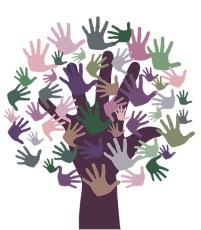NCVYS History
Founded in 1936, NCYVS was originally established by representatives from eleven of the biggest youth organisations (or juvenile organisations as they were then called) in England. These representatives made an agreement to form a SCJO (or Standing Conference Of Juvenile Organisations) that would promote greater coordination and cooperation between all of the member organisations.
The original eleven organisations included:
Opening The Membership
As of 1939, the NCYVS opened its membership to youth organisations which boasted a membership of a minimum of 10,000, however the organisation must not be political and must be working towards aiding the moral, physical or mental training of youths for citizenship. The same requirements remained in place until 1972 at which point the requirement for 10,000 members was removed.
At the same time, the constitution was changed to classify the members as Community & Voluntary Youth Services, including foundations, charities and initiatives put in place by local governments. By the late 1940s, almost 2 million young people were involved with the NCYVS' member organisations.
NCVYS Through the Years

During the 1970s, some research was released into the country's youth service needs for the decade and the NCVYS began working towards the recommendations which had been made. As the government continued to take no notice of the report, the NCVYS began to put pressure on the government, with the result being that in 1976 the Youth Services Forum was formed. Two years later, another body, known as the All Party Parliamentary Lobby on Youth Affairs was also launched. Through the late 1970s, the NCVYS also produced a number of highly influential reports covering issues like homosexuality, homelessness and the age of sexual consent.

The government called for a youth service review to be carried out in 1981, the NCVYS's director being asked to participate. He report drawn up looking into the resources being deployed on youth provision and whether they could be used more efficiently. However financial problems raised their heads with resentment and frustration being the result.
During this decade, many youths were unemployed and this was causing a lot of concern. The NCVYS worked during the 1980s to bring about improvements to the Youth Opportunities Programme, however 1981 still saw rioting among young people who felt alienated. The NCVYS sought to remedy the situation by encouraging support for multi-cultural programmes in its constituent organisations.
Throughout the 1980s, the NCVYS called for further improvements in the youth service and made many constructive suggestions to the government, many of which were accepted. In 1986, a policy was approved to promote equal opportunities for ethnic minority groups, gay and lesbian people, disabled people and females.
In more recent years, NCVYS has continued to raise the profile of young people's issues. Through hosting their own events and also participating in relevant third party events, the organisation is responsible for and works with a number of initiatives and coalitions, with their current key policy areas including child protection, safeguarding, training and employment, education, youth justice and volunteering.

